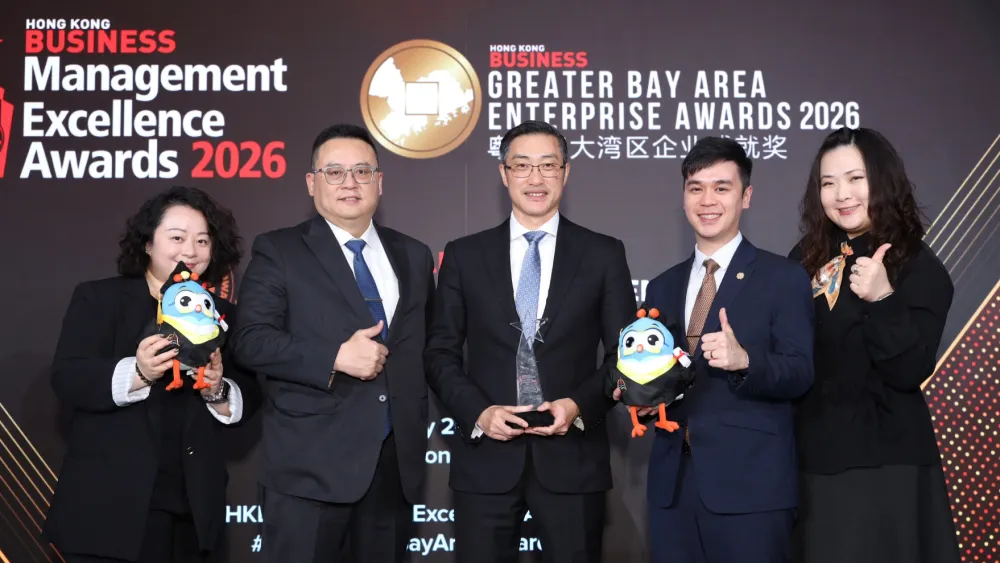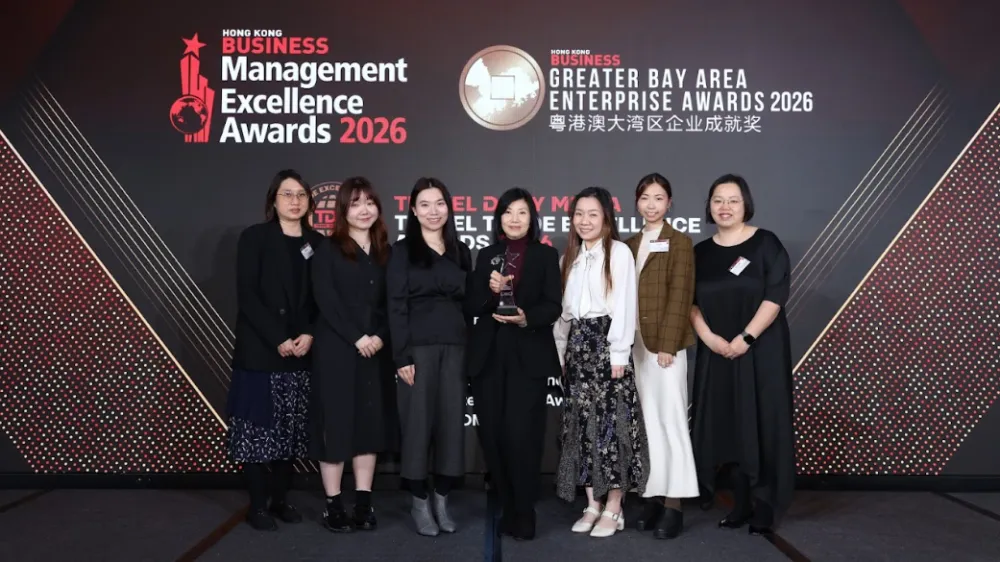
Pandemic highlighted the need for effective operational risk management, says Mazars partner
Ivan Chan noted how industries achieve operational resilience amidst market disruptions.
Ivan Chan is a Partner in Audit & Financial Advisory Services at Mazars in Hong Kong. He has over 20 years of experience in audit and financial advisory services and has a solid background in due diligence, mergers and acquisitions activities, business valuation, financial investigations, and initial public offerings.
Ivan also has extensive experience spanning a range of companies, including public companies, multinational corporations, not-for-profit organisations, and the private sector. His industry experience includes securities and commodities dealers, financial advisory service providers, IT and high-tech companies, resources, manufacturing, retail, and distribution.
He is also a member of the Hong Kong Institute of Certified Public Accountants and the Institute of Chartered Accountants in England and Wales.
Speaking of the lessons that the COVID-19 pandemic brought to the finance industry, he noted that it focused the attention on the importance of effective cross-border cooperation, coordination, and risk-sharing.
“The finance industry needs to identify a set of good practices and emerging practices of crisis management to enhance preparedness for, and facilitate the management and resolution of, a cross-border financial crisis that might affect the operation of our work,” he said.
He spoke with Hong Kong Business to share his insights on the challenges and opportunities surrounding the Hong Kong management landscape, the importance of diversity and inclusion, and sustainability initiatives in the workplace, as well as the key indicators in measuring a business’ success.
There is no denying that COVID-19 has changed how the world does business. What lessons did these bring to the finance industry and how can management adapt to these changes?
Since 2020, the COVID-19 pandemic has had an unprecedented impact on businesses and individuals everywhere. Despite the disruptions caused by the pandemic, the financial industry has strived to achieve operational resilience. In Hong Kong, the financial industry has demonstrated a high level of resilience. It is important to explore what aspects have been important and to be agile to guarantee smooth operations. COVID-19 has highlighted the importance of effective operational risk management being in place before a shock hits.
The pandemic highlighted the importance of effective cross-border cooperation, coordination, and risk-sharing. The finance industry needs to identify a set of good practices and emerging practices of crisis management to enhance preparedness for, and facilitate the management and resolution of, a cross-border financial crisis that might affect the operation of our work.
What do you think are some of the main problems surrounding Hong Kong management today? How can they address these?
In my view, Hong Kong still holds business opportunities, but an array of issues, especially draconian travel restrictions and worsening US-China relations, have become one of the problems for the Hong Kong management.
Hefty quarantine rules and travel restrictions continue to cause significant disruptions, are delaying new investments and are causing a struggle in recruiting executive talent to Hong Kong. The restrictions are also weighing on sentiments about living in Hong Kong, from both a company and personal perspective.
I think that the government at least needs to allow financial sector employees to travel freely to retain its global investment and banking hub status, as the city continues to maintain some of the strictest coronavirus regulations in the world.
Despite the pandemic, Hong Kong is still the largest hedge fund center in Asia, with more than half of the major funds that have at least US$1b under management located in Hong Kong. But travel restrictions and border closures have led to an exodus of residents from the city in the last two years, with the financial services sector facing a "brain drain" of talent.
Quarantine rules and flight bans have meant business travel to Hong Kong has flatlined and global finance and banking C-suite level executives have mostly avoided travelling here since 2020, whilst visiting rival regional financial hub Singapore in recent months.
What are your key performance indicators (KPI) for measuring businesses’ growth and success? How can management make these indicators more attainable?
I think for most accounting firms, these are the KPIs that we as management use to measure business growth.
Year-over-year profitability by industry and service line segment: Looking at this data historically can help determine what is growing and what is declining. This is an important KPI to monitor as many CPA firms look to transition leadership, invest in expansion, or just have an insight on what is working well.
New client growth: It should go without saying that many CPA firms want to measure new client growth. We have a platform called "client vault" to track through. It helps us understand how well we are hitting our goal. It should give you a predictive line of sight on how much business you’re bringing in and, potentially, how much you need to replace if you are tracking recurring work versus one-time projects. This data will come from both practice management and your pipeline.
Average fee per engagement: One of the metrics to track is the average fee per engagement. This number can help with growth planning as we move forward. Ideally, the fee per engagement should be going up as a whole. This is important to look at by service line and by industry.
Attrition: Like most CPA firms, clients move on or businesses close; it happens. It’s not anyone’s fault, and it’s not because we don’t provide quality service, but there’s no way a firm can keep 100% of everything we do each year.
Nowadays, many firms still don’t evaluate how much business they are losing and simply guess. However, this metric will help us identify how much business we need to replace on an annual basis for any one-time work we are doing and to understand your natural attrition.
Cross-selling: For accounting firms , new and expanded businesses can come from existing clients. In fact, this is an area many firms tend to pay less attention to than they should. Tracking expanded services with existing clients isn’t always easy, but it is possible to do.
Client services: Last and certainly not the least important, one of the things many firms have struggled with is understanding what services they’re selling to each client. They’ve relied heavily on time and billing data instead of client engagements and how they’re engaging with content to gain insights on what services their clients have purchased and which ones they haven’t. This is a critical metric to understand how deep you’re going with clients. Each year, we have a client listening survey sent out to key clients to get the idea of what we could improve and what works well for them.
With more employees and companies placing greater consideration for diversity and inclusion, how do you think managements can promote an inclusive and empowering environment for their stakeholders?
At Mazars, diversity is a key topic on our management agenda. It is how we have grown as an international group, deeply rooted in local territories and cultures, and it is how we operate today and how we plan for tomorrow. Diversity and inclusion are the foundations of the modern firm we strive to be.
More diverse, more inclusive workplaces are workplaces fit for the future. We are dedicated to ensuring Mazars is an organisation where people have a sense of belonging, a united partnership where people can make meaningful contributions and be who they are. In doing so, we build a culture and a firm that delivers better value for our clients and our people alike.
Amongst several other issues, gender equity is a concern for modern societies where we all need to play our part. Diversity and inclusion are at the top of our agenda. Our management takes a leading role in ensuring Mazarians feel respected at work. Our core values of integrity and respect for people, and the impact we expect to make, Mazars is committed to turning awareness into effective, transformative action.
We know value for our business and our clients is created by embracing different perspectives, empowering our people and bringing to the table varied backgrounds, views and skills.
As an international partnership with local roots all over the world, Mazars is—by nature—a geographically diverse organisation that has grown to various nationalities, languages, and educations of our team.
Making the most of these differences as an inclusive organisation allows us to solve problems, move our firm forward and better serve our clients.
Diversity goes beyond geographical differences. At Mazars, we are committed to fostering an inclusive environment where teams, leaders, and performance come in many different styles, from diverse ethnic backgrounds, and where these differences lead to greater value and success.
These differences include, but are not limited to, age, culture, education, gender, language, religion, sexual orientation, socioeconomic background, and working style. We are one team at Mazars and are dedicated by design to being a diverse and inclusive organisation.
In recent years, we have increased the representation of women in leadership positions and have made significant progress towards gender equity across Mazars. Our Mazars four-year strategic plan contains a set of measures to help us achieve greater gender equity.
As industries are urged to employ ESG programme in their operations, what do you think management can do to promote this amongst its stakeholders? What do you think will be some of the challenges in this undertaking?
At Mazars, ESG and sustainability are in the DNA of our firm and we put the strategy into action.
We put our ESG strategy into action with the main themes of:
Integrity and responsibility: We ensure quality, integrity, and compliance, responsibility for quality and data privacy.
People at the heart of our development: Our people pillar rests on three key enablers: empowering our people to grow and lead, diversity and inclusion, as well as learning and culture.
In empowering our people to grow and lead, we have leaders as coaches, reinforce our employee value proposition, and ensure employee health and well-being.
In diversity and inclusion, we are building awareness programmes. We are also reviewing HR processes and identifying change drivers and acceleration mechanisms to ensure we guide and support all our employees throughout their career cycle.
Whilst for learning and culture, we are managing and developing our talent through our international mobility programme. We also have a new role, the ReCoach, and our distinctive development centre, LEAD.
Reducing environmental impact: To put sustainability at the core of everything we do, Mazars organises regular meetings and working sessions with the support function teams, including Human Resources, Finance, Legal, IT, Learning and Development, Aligned with this objective, Mazars also developed a supplier code of conduct stipulating the social, ethical, and environmental standards that are expected from our suppliers. We are engaging with key business functions, particularly our IT department, to implement this code of conduct.
Besides that, we have developed Sustainability Foundation Courses to help employees become effective agents of change.
Contributing to local communities: Our efforts are not only about financially supporting good causes but also about engaging our employees through volunteering and pro bono opportunities to work hands-on with local communities. Whilst there are many causes to which we contribute, we have identified one social cause that is fundamental to our business and where we believe we can create a lasting impact. Considering we support and invest in the constant learning and development of our own employees, we are convinced of our responsibility and capability to make a difference in local communities by equipping disadvantaged people with relevant knowledge and skills. Our approach to education is shaped by our values of responsibility.
Supporting business on a sustainable journey: Being sustainable creates business opportunities as we collaborate with our clients to strengthen business resilience, create economic value, and contribute to a healthy ecosystem and strong community.
Achieving this requires good governance and quality corporate reporting across the full range of ESG issues. This results in clear benefits: increased trust, greater employee engagement, less waste through improved business processes and support from stakeholders. Our sustainability services support clients to leverage these benefits within their businesses, enabling them to build their competencies to address impacts, mitigate risks, and embrace opportunities.
Developing strong sustainability reporting goes beyond just complying with applicable regulations. Having identified the sustainability topics that matter most to the business and to stakeholders will help define the best ways to measure achievements against those objectives.
Coming back from judging last year’s HKB Management Excellence Awards, what are you hoping to see from this year’s entries? What qualities stand out for you?
For this year, I hope to see projects that can highlight their innovative solutions that significantly improve the business profiles; projects that increase employee engagement and COVID management activities that have beneficial impact to internal and external stakeholders; and projects that show competitive advantages.



















 Advertise
Advertise









